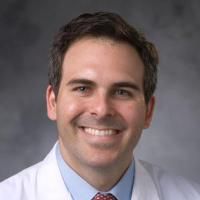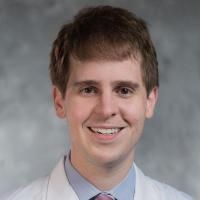Transthyretin amyloid cardiomyopathy among patients hospitalized for heart failure and performance of an adapted wild-type ATTR-CM machine learning model: Findings from GWTG-HF.
Date
2023-11
Journal Title
Journal ISSN
Volume Title
Repository Usage Stats
views
downloads
Citation Stats
Attention Stats
Abstract
Background
An 11-factor random forest model has been developed among ambulatory heart failure (HF) patients for identifying potential wild-type amyloidogenic TTR cardiomyopathy (wtATTR-CM). The model has not been evaluated in a large sample of patients hospitalized for HF.Methods
This study included Medicare beneficiaries aged ≥65 years hospitalized for HF in the Get With The Guidelines-HF® Registry from 2008-2019. Patients with and without a diagnosis of ATTR-CM were compared, as defined by inpatient and outpatient claims data within 6 months pre- or post-index hospitalization. Within a cohort matched 1:1 by age and sex, univariable logistic regression was used to evaluate relationships between ATTR-CM and each of the 11 factors of the established model. Discrimination and calibration of the 11-factor model were assessed.Results
Among 205,545 patients (median age 81 years) hospitalized for HF across 608 hospitals, 627 patients (0.31%) had a diagnosis code for ATTR-CM. Univariable analysis within the 1:1 matched cohort of each of the 11-factors in the ATTR-CM model found pericardial effusion, carpal tunnel syndrome, lumbar spinal stenosis, and elevated serum enzymes (e.g., troponin elevation) to be strongly associated with ATTR-CM. The 11-factor model showed modest discrimination (c-statistic 0.65) and good calibration within the matched cohort.Conclusions
Among US patients hospitalized for HF, the number of patients with ATTR-CM defined by diagnosis codes on an inpatient/outpatient claim within 6 months of admission was low. Most factors within the prior 11-factor model were associated with greater odds of ATTR-CM diagnosis. In this population, the ATTR-CM model demonstrated modest discrimination.Type
Department
Description
Provenance
Subjects
Citation
Permalink
Published Version (Please cite this version)
Collections
Scholars@Duke

Nicole Solomon

Karen Chiswell
Ph.D., North Carolina State University - 2007
I work closely with clinical and quantitative colleagues to provide statistical leadership, guidance and mentoring on the design, execution, and analysis of clinical research studies. My work includes design and analysis of observational studies (including large cardiovascular registries, and clinical care databases linked with electronic health record data) and early-phase trials in pediatric populations. My statistical interests include study design, linear and non-linear mixed effects models, survival analysis, biology- and mechanism-based models, and statistical thinking and learning.

Michel Georges Khouri

Adam David DeVore
Adam D. DeVore, MD, MHS
Dr. DeVore is a cardiologist and Associate Professor of Medicine in the Department of Medicine, Division of Cardiology, at Duke University School of Medicine. His clinical interests include caring for patients and families with heart failure, including those with left ventricular assist devices and heart transplants. He is involved in and leads multiple large studies of patients with heart failure at both Duke University Medical Center and the Duke Clinical Research Institute. He currently serves as the medical director of the Duke Heart Transplant program.
He attended medical school at the University of Chicago Pritzker School of Medicine and completed internal medicine residency at Brigham and Women’s Hospital. He then pursued cardiology training at Duke University and solidified his interests in clinical research and heart failure. He completed a research fellowship at the Duke Clinical Research Institute and a Masters of Health Sciences in Clinical Research before completing an advanced heart failure fellowship at Duke University.
The overarching goals of his research are to advance the current understanding of heart failure through clinical trials as well as develop an evidence base for implementation strategies that addresses the gap between heart failure trial results and clinical practice. For example, he has served on the Steering Committees for large clinical trials, including PIONEER-HF and SPIRRIT-HFpEF. Dr. DeVore also published the first clinical trial conducted within the American Heart Association’s Get With The Guidelines-Heart Failure program, a registry-based cluster randomized trial of quality improvement interventions. He was also the principal investigator for CONNECT-HF, a large-scale, pragmatic, cluster-randomized trial at 161 sites in the US evaluating heart failure quality improvement initiatives. Outside of his work on heart failure, Dr. DeVore is married with 4 children and spends his time corralling them all and coaching youth baseball.

Stephen Greene
I am a cardiologist with a clinical and research interest in heart failure. I take care of patients with various types of heart failure, including patients who are best treated with medications and patients who receive advanced therapies like heart transplantation and mechanical assist devices. I became a heart failure cardiologist to help patients manage their heart conditions and best achieve their goals for their health. I am strongly committed to helping patients thoroughly understand their medical conditions and helping them make informed medical decisions aligned with their preferences.
My research interests are focused on strategies and therapies to improve outcomes and quality of life for patients with heart failure. This involves research through clinical trials and through examining data from real-world clinical practice. Below, you will find my specific research interests:
- Use and dosing of evidence-based heart failure medications
- Management of worsening heart failure outside the hospital
- Novel pharmacological and non-pharmacological approaches to heart failure
- Improving outcomes following a hospitalization for heart failure
- Surrogate and nonfatal endpoints in heart failure clinical trials
- Clinical trial design and operations
- Improving site-based heart failure research
Material is made available in this collection at the direction of authors according to their understanding of their rights in that material. You may download and use these materials in any manner not prohibited by copyright or other applicable law.